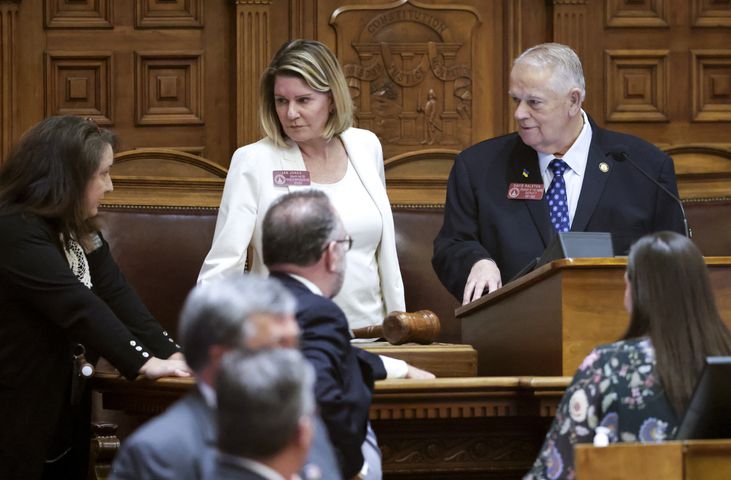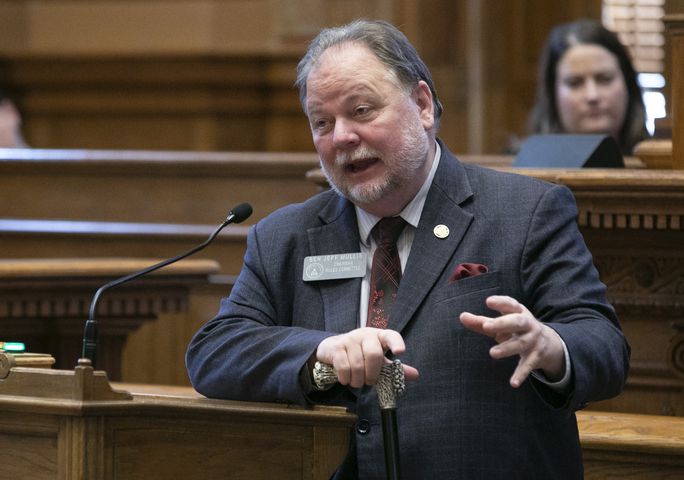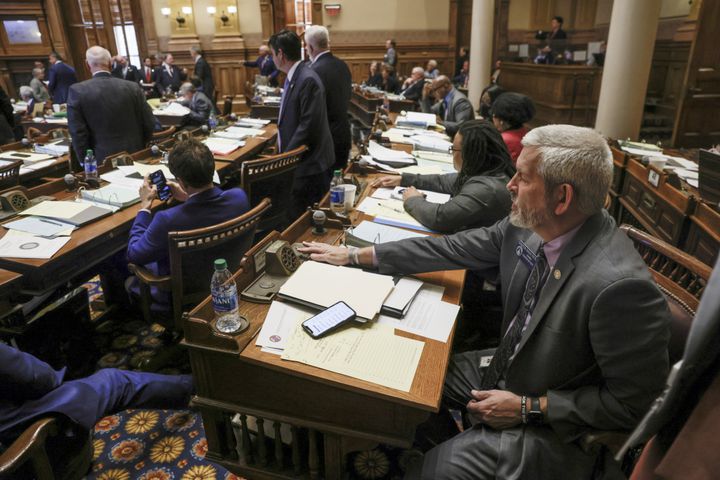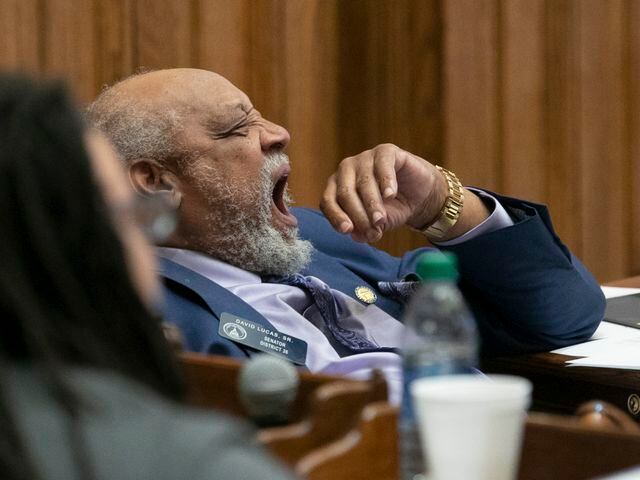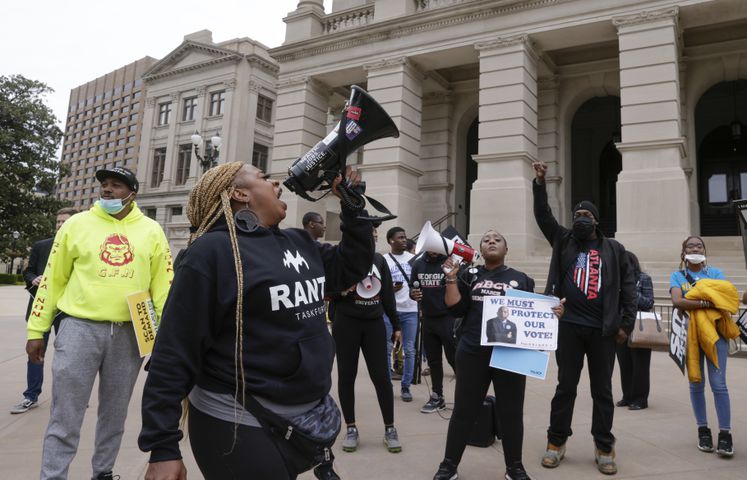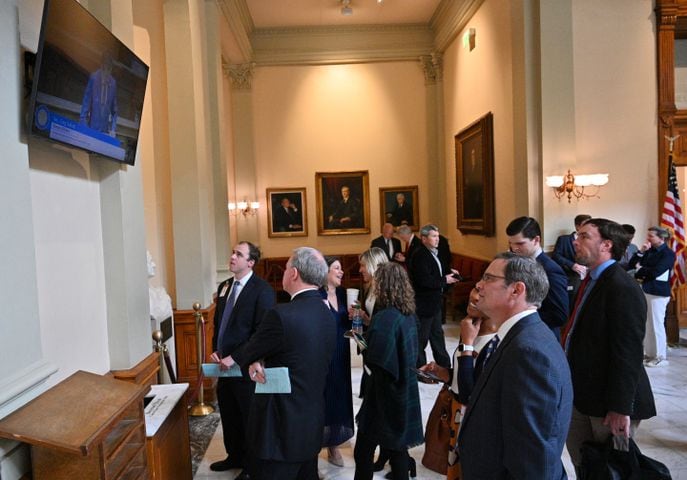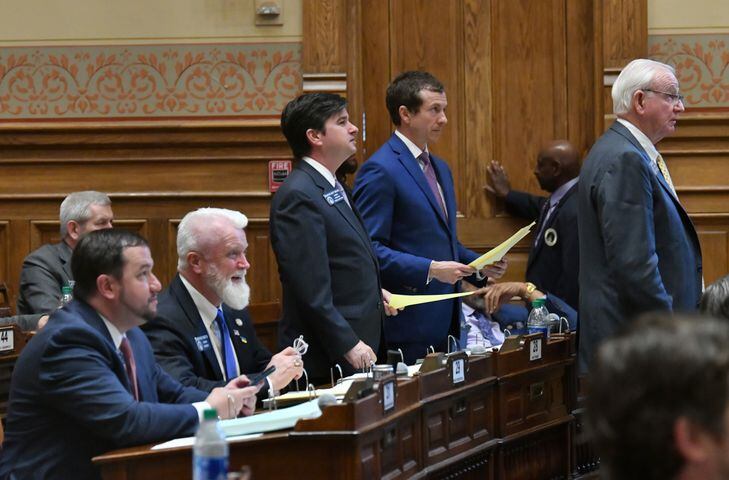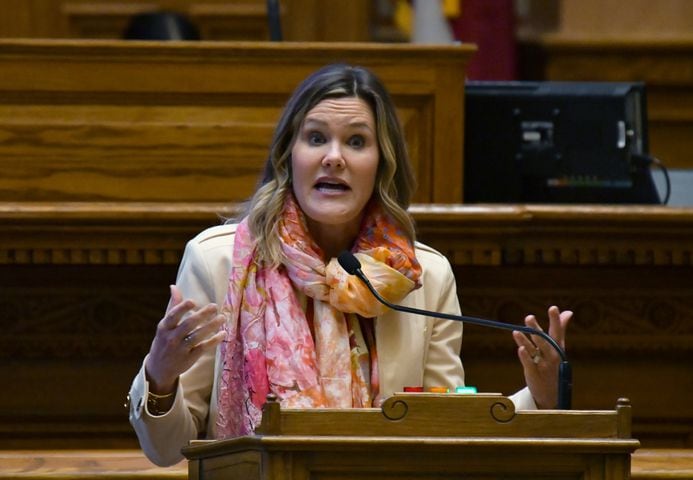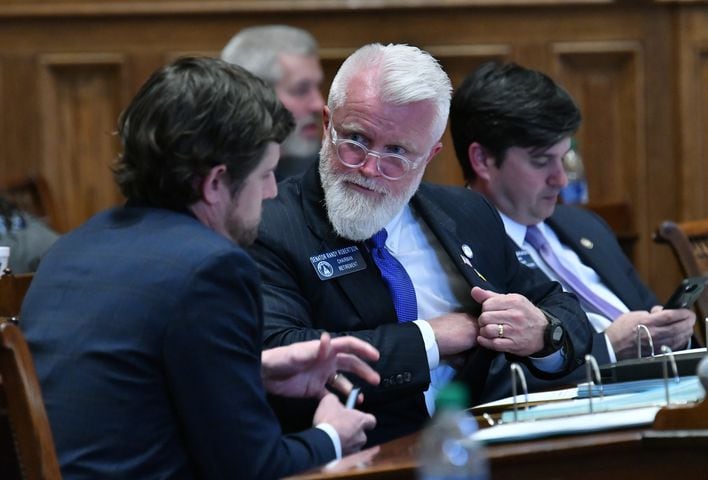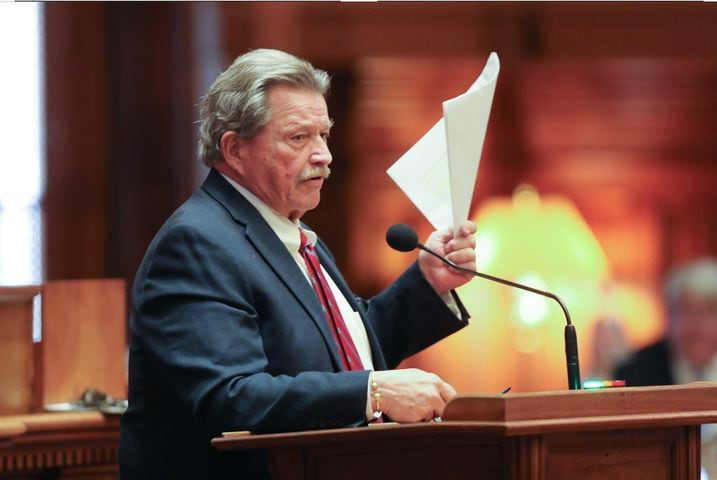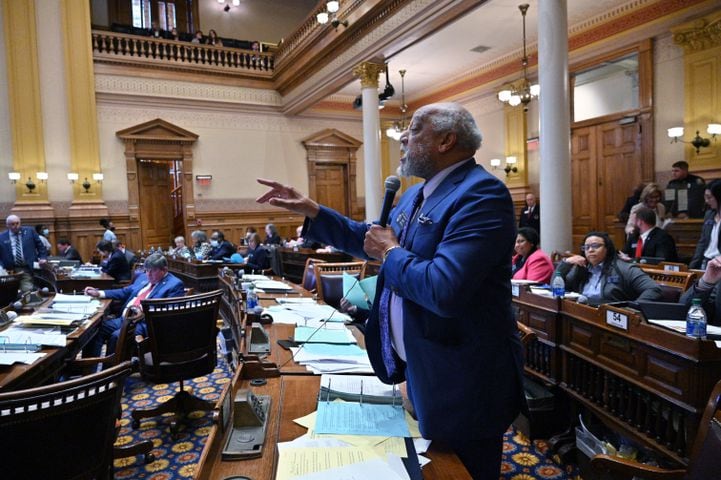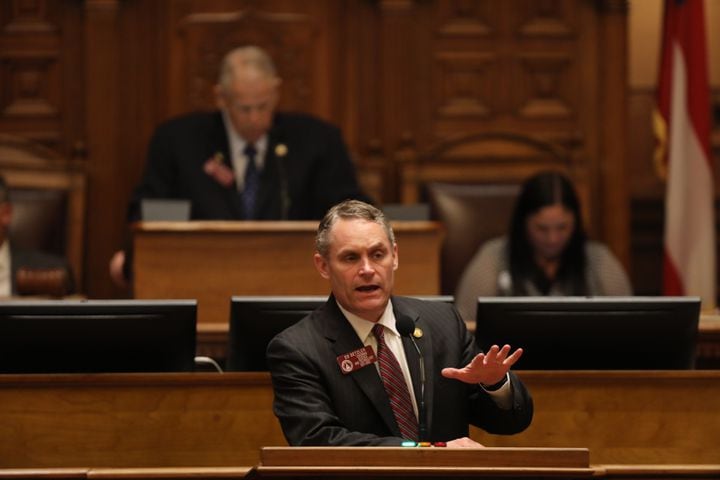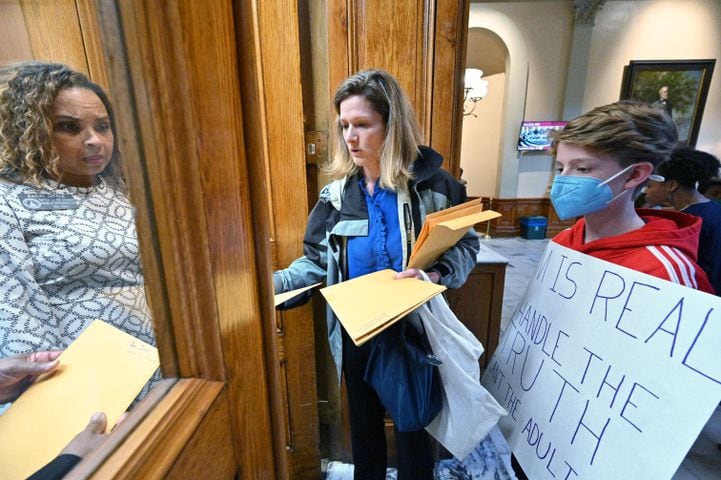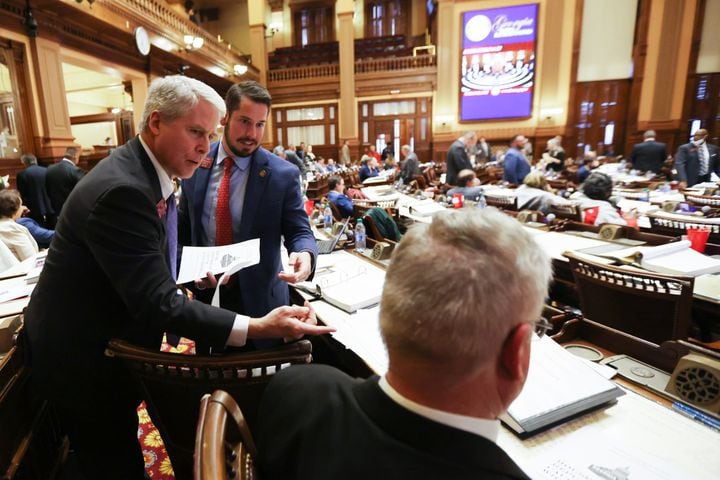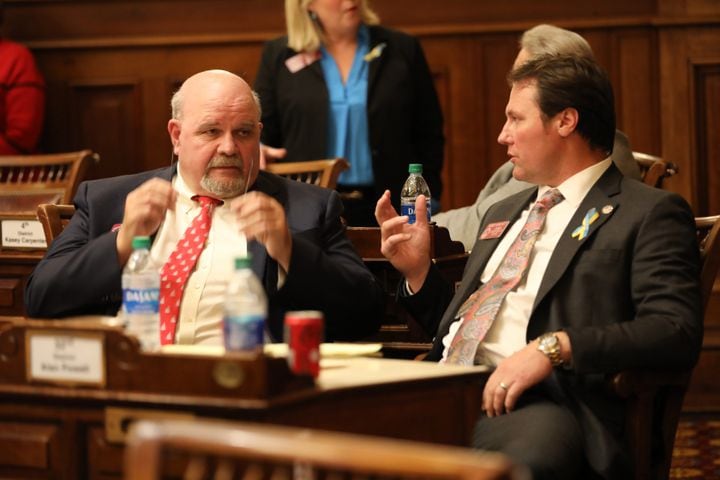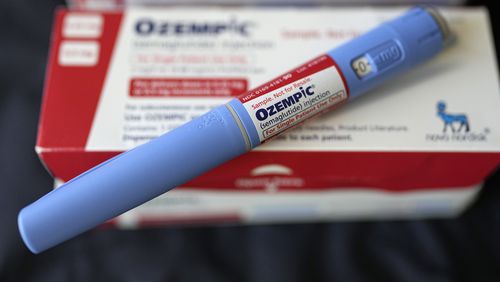Georgia legislators voted on dozens of bills before a key deadline Tuesday, including proposals to increase their own pay and pensions, to revive the state’s stalled medical marijuana program, and to again change election laws.
The flurry of votes came on Crossover Day in the General Assembly, its internal deadline for bills to pass at least one legislative chamber. Measures that failed to advance by Tuesday have less of a chance of becoming law, but they could later be revived if their language is inserted into other bills that previously passed a chamber.
The House voted 136-33 for House Resolution 842, which would put a proposed constitutional amendment on the ballot this fall to take the issue of legislator pay out of the General Assembly’s hands. If approved, legislators would be paid 60% of the median household income of Georgians, starting in 2025.
That would about double lawmakers’ current pay of $17,342. Lawmakers last received a cost-of-living raise in 2008.
The House also voted 151-17 to increase the pensions of part-time lawmakers up to 38% and quadruple what House Speaker David Ralston could receive.
Both measures now head to the Senate for its consideration.
The Senate Finance Committee supported suspending Georgia’s 29.1-cents-per-gallon gas tax through May 31, which would save drivers about $400 million in taxes. The effort to remove the gas tax comes as pump prices reached an average of 4.32 per gallon on Tuesday, according to GasBuddy, a fuel-tracking service.
The bipartisan effort is an attempt to ease the burden on consumers after Russia’s invasion of Ukraine caused an increase in gas prices. The gas tax suspension had already passed the House and was poised to win final approval in the Senate. Gov. Brian Kemp is expected to quickly sign the bill into law.
Lawmakers in both chambers also voted in support of bills that would revive Georgia’s medical marijuana program, which has been delayed because of disputes over which companies should be licensed.
Three years since a state law called for six companies to produce and sell cannabis oil, no licenses have been issued because of protests by businesses that allege the selection process was unfair and subjective.
The Senate unanimously passed a measure, Senate Bill 609, that would quicken the process, setting a May 31 deadline for the Georgia Access to Medical Cannabis Commission to issue licenses.
The House passed a separate measure, House Bill 1425, that would restart the competitive bidding for licenses later this year, a process that would delay license awards for months, if not years. The legislation passed 169-5.
The Senate voted 31-21 along party lines to back legislation that would impose harsher penalties for crimes committed during a protest, such as blocking a highway, assaulting someone or damaging property if it involves groups of two or more people, and punish local governments that instruct public safety officers to “stand down” during protests.
Late Tuesday, the House voted 98-73 for House Bill 1464, a Republican-backed measure to empower the GBI to investigate voting fraud, allow public ballot inspections and restrict nonprofit donations to county election offices.
The bill is the latest effort to change voting rules in the wake of the 2020 election, when Democrat Joe Biden narrowly defeated Republican Donald Trump in Georgia.
Voting rights groups marched in protest of the legislation Tuesday and Democratic representatives opposed it, saying the measure would hinder competent county elections management.
Not everything went smoothly for legislative leaders Tuesday.
A proposed constitutional amendment to allow horse racing in the state went down to defeat in the Senate.
The Senate also again rejected private school voucher legislation that would have offered annual subsidies to students who switched from public schools.
Senate Bill 601 failed 29-20 — an even wider margin than the rejection of a similar bill in 2019.

